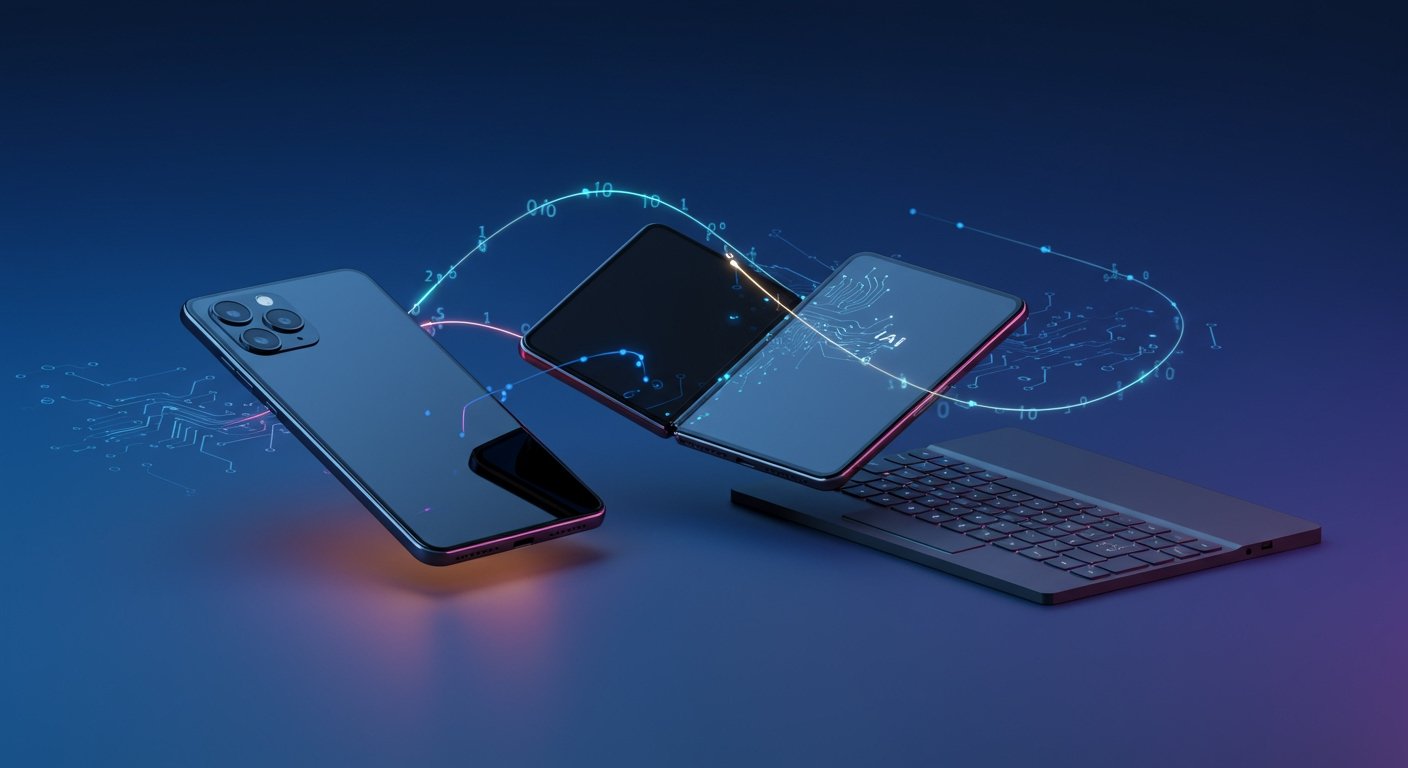June 23, 2025 — The technology landscape continues its rapid evolution, driven by ambitious hardware roadmaps and the accelerating integration of artificial intelligence. Today’s significant developments include insights into Apple’s long-term vision for the iPhone, anticipated refinements in Samsung’s dominant foldable lineup, and Microsoft’s formal push into a new era of AI-enhanced personal computing.
Apple’s Vision: Towards an All-Screen iPhone
According to recently surfaced leaked plans, Apple is charting a course towards a truly all-screen iPhone experience, with a target date set for 2027. This ambitious goal aims to entirely eliminate display cutouts, offering users an uninterrupted edge-to-edge viewing area.
The journey to this seamless design appears to be incremental. Rumors circulating regarding the iPhone 18 Pro, expected to debut in 2026, suggest a transitional phase. This model is anticipated to incorporate under-display Face ID technology, allowing facial recognition hardware to be hidden beneath the screen, while still retaining a small camera punch-hole.
Building upon this foundation, the 2027 model is where Apple reportedly intends to realize the full vision: a design characterized by a completely edge-to-edge glass front, free from any visible sensors or cameras within the display area itself.
Looking to the more immediate future, the 2025 iPhone 17 series may also see a significant shakeup in its lineup structure. Speculation points to the introduction of a new, ultra-thin model dubbed the “iPhone 17 Air,” potentially replacing the current Plus model. This series is also rumored to include an iPhone 17 Ultra, suggesting a further differentiation at the high end of the product spectrum.
Samsung’s Foldable Evolution: Thinner Designs on the Horizon
Samsung, a pioneer in the foldable smartphone market, is gearing up for its next major device launch. An anticipated Unpacked event, leaked to be scheduled around July 9-10, is expected to unveil the next generation of its flagship foldable devices: the Galaxy Z Fold 7 and Galaxy Z Flip 7.
Particular attention is being paid to the Galaxy Z Fold 7. Rumors indicate this iteration will be significantly thinner than its predecessors. While this slimness is likely to be welcomed by users, it may come with a notable design compromise: the potential sacrifice of the S Pen digitizer layer integrated into the main display. Should this occur, users who wish to utilize S Pen functionality would need to acquire the stylus separately, rather than having the built-in support found in some previous Fold models.
Microsoft’s AI PC Push: Copilot+ and Snapdragon X Plus
In the realm of personal computing, Microsoft has made a significant move by launching its new category of “Copilot+” PCs. These devices are specifically designed to leverage on-device artificial intelligence capabilities to enhance user productivity and creativity.
The initial wave of these Copilot+ PCs includes new models from Microsoft’s own hardware line: the Surface Pro (12-inch) and the Surface Laptop (13-inch). A key enabling technology for these devices is Qualcomm’s new Snapdragon “X Plus” chip. This processor is notable for its integrated NPU (Neural Processing Unit), which Microsoft highlights as being capable of delivering an impressive 45 trillion operations per second.
These new Arm-based PCs are touted for their performance efficiency. Microsoft claims they are 50% faster than the previous generation of Surface devices and are competitive with Apple’s M3 MacBook Air in certain performance benchmarks. The powerful NPU is the engine behind several new, exclusive Windows 11 AI features that run locally on the device.
These features include a dedicated Copilot key on the keyboard for instant access to Microsoft’s AI assistant, a revolutionary Recall feature that allows users to intelligently search through past activities on their PC, Photos Relight editing for easy image adjustments, and “Click to Do” contextual actions that appear based on screen content. The emphasis on local processing for these features aims to provide faster performance and enhanced privacy.
Taken together, these announcements and rumored developments from Apple, Samsung, and Microsoft underscore a pivotal moment in consumer technology, marked by intense innovation in mobile form factors and the foundational integration of artificial intelligence across device categories.




